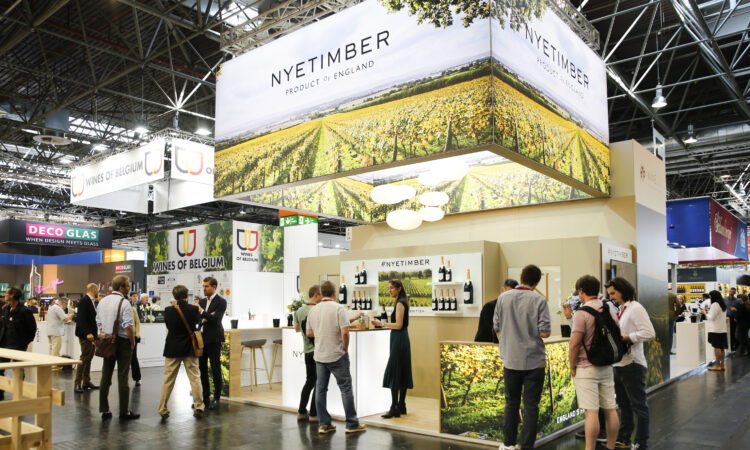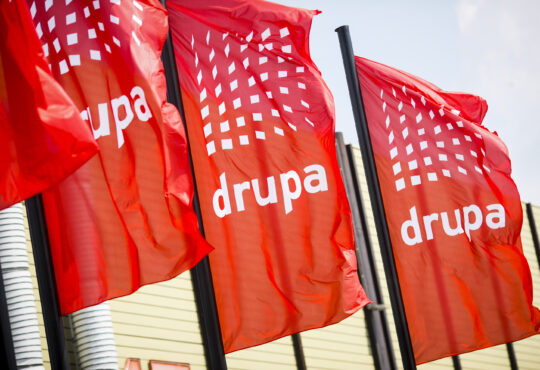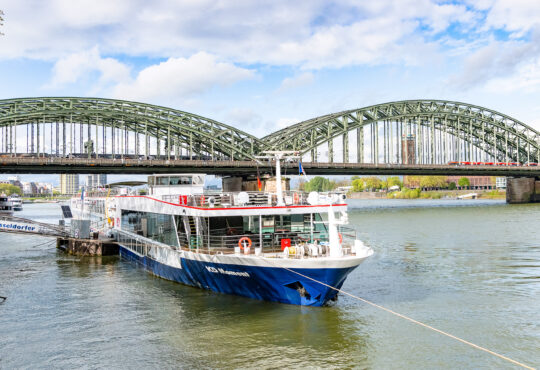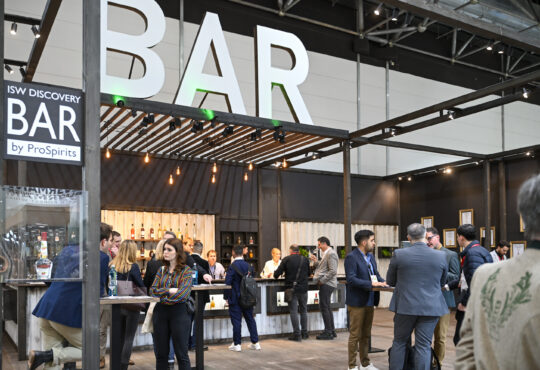Very British: how wine from England and Wales became an export hit

The big wine-growing nations are starting to face competition – and what’s more, from
an unexpected direction. Great Britain’s wines impress critics, customers and even
the Royal Family. Climate change could even fuel this success.
When Pierre-Emmanuel Taittinger bought some 70 hectares of arable land in the British
county of Kent in 2015, this move hit the headlines worldwide. After all, Taittinger is not just
any entrepreneur but the CEO of what is probably the world’s most well-known Champagne
manufacturer. This company was established in Reims in 1734 and has been a flagship for
France ever since. Which is why Taittinger now also growing his grapes in Great Britain as
part of a joint venture with the British wine agency Hatch Mansfield caused such a stir. It
shifted the British wine scene, that had hardly received any international attention, into the
public eye.
Over the last 30 years an increasing number of wine-growing areas have been emerging in
regions previously regarded as little to not suitable at all for growing those oh-so-sensitive
vines. This is also reflected when glancing through the list of exhibitors at the leading
international trade fair for wines and spirits, ProWein, held in Düsseldorf from 19 to 21 March
2023. Whereas suppliers from classic wine-growing nations such as France, Italy, Spain and
Germany were largely among themselves up to the noughties, the line-up has expanded
significantly now – and shifted north. This is made possible by climate change, which brings
higher temperatures and frost-free soils far into the Scandinavian countries. Which is why
award-winning wines now also come from Belgium and the Netherlands, Denmark, Sweden
and even Norway. The Norwegian wine estate Lerkekåsa, located on roughly the same
latitude as Alaska’s capital Anchorage, is considered the world’s most northerly, commercial
wine-growing region.
Great Britain has developed into a veritable centre for wine production. The number of British
wine estates grew from 0 to 897 between 1970 and late 2022; the cultivated area has
quadrupled since 2000 amounting to some 3,700 hectares. Likewise, the number of bottles
sold has also seen a constant rise. While in 2020 the number totalled around 7.1 million
bottles, in 2021 this figure was already as high as 9.3 million – an increase of around 31%.
This is far from being the end to this development because winemakers are driven by an
ambitious goal: in the mid-2030s 40 million bottles made in Britain are set to be sold.
Climate change helps British vintners
The chances of this succeeding are good. In terms of its climatic conditions and soil
composition, England’s south coast, where 90% of the wines are grown, strongly resembles
the Champagne region. And the choice of grape varieties – Pinot Noir, Chardonnay and
Pinot Meunier – is also French-inspired. However, while the wine harvests in the Grande
Nation are deteriorating as a result of global warming, things are going well in Great Britain.
Temperatures have, of course, also risen here over the past few years, but they are still a
few degrees below those of other wine-growing regions. The climatic conditions on the south
coast of England correspond to those in the Champagne region 50 years ago. It looks as if
climate change would go hand in hand with enormous opportunities for winemakers in Great
Britain. This is also shown by a current study on the climate resilience of British wine
published in the trade journal OenoOne of the International Viticulture and Enology Society.
According to this study, the average temperatures of the vegetation period in the most
important wine regions of Southern England and South Wales rose by around 1° Celsius
between 1981 and 2018. By 2040 the authors of the study expect a further increase of 0.4°
Celsius, which would create similar conditions as in Burgundy and Baden and open up new
possibilities for grape varieties and wine styles.
British wines deliver both mass and class
The good reputation of English and Welsh wines has spread throughout the world. The
interest taken in these products is very high, as shown by the well-attended stands of those
wine estates participating in industry trade fairs such as ProWein in Düsseldorf. According to
the industry association Wines of Great Britain, British wines are currently exported to 30
countries, above all to Scandinavia, Japan and the USA; but they also enjoy growing
popularity in Hong Kong, Germany, Switzerland and the Netherlands. Especially popular are
British sparkling wines that account for roughly two thirds of production. In terms of
production and taste they strongly resemble Champagne, even though they are not allowed
to call themselves that. As is well known, this name is reserved to the sparkling wines hailing
from the Champagne region. However, British wines not only score points with quantity but
also with quality; they have already won several international prizes. Many a critic even got
carried away saying that there was no need to hide behind the competition from Champagne.
This praise was also noted in the highest circles. Wines from local production are served at
state banquets or celebrations of the British Royal Family.
Sparkling wine is coming home
Many would not have thought that British wines would become such a success. In Britain
itself, however, people are not particularly astounded by this development. After all, the
Romans already practiced viticulture in Anglo-Saxony in ancient times. What’s more,
Champagne – legend has it at least – was actually invented by the Brits: The English doctor
and physicist Christopher Merret already explained how to make wine sparkle at the Royal
Society in London as early as 1662 – more than twenty years before the French monk Dom
Perignon made his first Champagne. Today, we are coming full circle: sparkling wine is
coming home!
At ProWein 2023 in Düsseldorf a great number of exhibitors from Great Britain will be
represented with still, sparkling and organically grown wines, see
exhibitors and products list.
For detailed information on winemaking in Great Britain visit the website of the industrial
association Wines of Great Britain at www.winegb.co.uk







